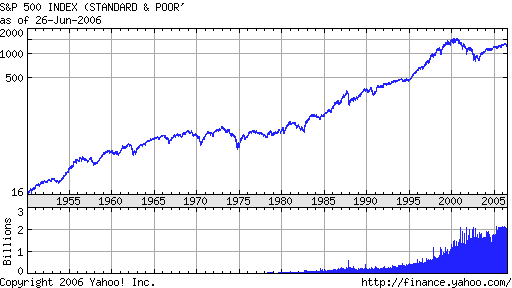maddythebeagle
Thinks s/he gets paid by the post
- Joined
- Jun 15, 2005
- Messages
- 2,450
http://biz.yahoo.com/usat/060713/13639559.html
comments on this article? Something that I have been thinking about....I think most people here have learned to slice and dice and not all in sp 500....I am not sure that the sp500 is a good example for this article considering how large cap stocks got out of control a while back.....
comments on this article? Something that I have been thinking about....I think most people here have learned to slice and dice and not all in sp 500....I am not sure that the sp500 is a good example for this article considering how large cap stocks got out of control a while back.....

